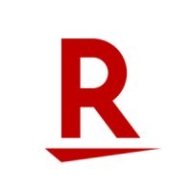

Prometheus Group and Rakuten SixthSense compete in enterprise management solutions. Prometheus Group takes the upper hand with affordable pricing and customer support, while Rakuten SixthSense leads in advanced features with a focus on data analytics.
Features: Prometheus Group offers asset performance management, work order management, and seamless system integration. Rakuten SixthSense provides comprehensive analytics, AI-driven insights, and enhances decision-making through data analytics.
Ease of Deployment and Customer Service: Prometheus Group provides hassle-free deployment supported by strong customer service. Rakuten SixthSense requires more intricate integration but matches in commendable support.
Pricing and ROI: Prometheus Group features cost-effective setups that improve ROI through efficient asset management. Rakuten SixthSense involves a higher initial cost but promises higher long-term ROI with its enhanced data capabilities.

Prometheus Group specializes in robust monitoring and observability, offering comprehensive data collection, analysis, and visualization across cloud and on-premise environments. Its integration with tools like Python, Java, and Kubernetes enables users to track metrics efficiently.
Prometheus Group provides an open-source, customizable platform focused on flexibility and reliability. Its integration with Grafana enhances data visualization while supporting complex infrastructures for improved productivity. Users rely on its scalable architecture for effective monitoring and observability, aiding performance analytics and alerting. Despite its strengths, challenges with its query language and interface usability persist, along with a need for simpler setup. Enhancing documentation and reporting capabilities remains essential for broader adoption, especially among less technical users.
What are the standout features of Prometheus Group?Prometheus Group is widely implemented across industries like cloud services and IT infrastructure. Organizations monitor infrastructure, applications, and databases, utilizing its capabilities for system scalability and health checks within Azure and Amazon ecosystems. Its integration with Kubernetes supports performance monitoring and ensures reliable data analytics, fostering comprehensive metric tracking.
Rakuten SixthSense is used for advanced data analytics and providing detailed insights that help in decision-making. Users appreciate the intuitive design that simplifies extracting actionable reports.
Rakuten SixthSense is valued for its ability to integrate data sources, making it easier to monitor business performance. Users find it effective in identifying trends and patterns, contributing to strategic planning and operational efficiency. However, users find challenges with speed and performance, sometimes experiencing lags during critical operations. Occasional crashes have raised concerns about reliability. There are also improvement suggestions for better compatibility with other systems and a more intuitive design to address the steep learning curve. Accessibility features are lacking, with users calling for better support for diverse user abilities.
What are the most valuable features of Rakuten SixthSense?Rakuten SixthSense is implemented across industries such as finance, retail, and healthcare. Companies use it to monitor financial performance, identify customer behavior trends, and improve patient care through better data management and analytics. Its adaptability allows it to meet specific industry requirements effectively.
We monitor all Application Performance Monitoring (APM) and Observability reviews to prevent fraudulent reviews and keep review quality high. We do not post reviews by company employees or direct competitors. We validate each review for authenticity via cross-reference with LinkedIn, and personal follow-up with the reviewer when necessary.